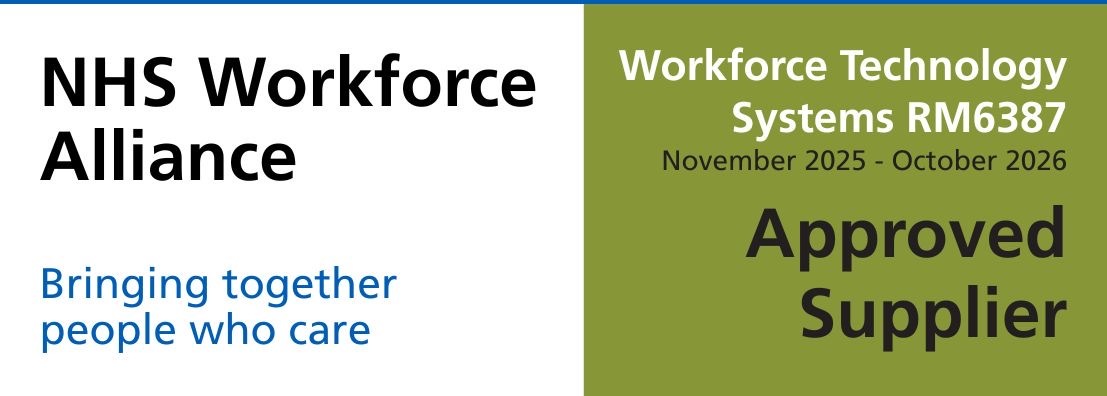
Blog by Flexzo
How Healthcare Onboarding Delays Worsen the NHS Staffing Crisis
Every minute counts in healthcare, yet the NHS regularly loses thousands of staff hours through administrative delays rather than actual shortages. The gap between a professional accepting a position and working their first shift has grown into weeks of lost productivity. These healthcare onboarding delays compound the NHS staffing crisis in ways we’re only beginning to understand, affecting everything from shift patterns to patient outcomes.
The Real Cost of Healthcare Workforce Solutions Delayed
When a qualified nurse accepts a position, they’re typically eager to begin contributing immediately. However, the journey from acceptance to first shift involves navigating multiple administrative requirements that can stretch what should be days into several weeks. This isn’t simply an inconvenience – it’s a systematic challenge that affects NHS recruitment innovation at every level.
Consider a typical scenario that plays out across the NHS daily. A Trust urgently needs ICU cover and successfully recruits an experienced nurse through their staff bank. The nurse is qualified, available, and eager to help. Yet administrative processes mean they’ll wait 14 days or more before working their first shift. During this period, the Trust continues paying premium agency rates while existing staff stretch themselves to cover gaps.
This pattern repeats across every NHS Trust, creating a paradox where we have willing professionals unable to work while departments struggle with staffing shortages. The NHS staffing crisis deepens not just from lack of professionals, but from our inability to efficiently deploy those we’ve already found.
Where Time Disappears
Understanding the specific bottlenecks in onboarding reveals opportunities for meaningful change. Traditional processes follow predictable patterns that, while individually justifiable, compound into weeks of delay.
Identity and Document Verification
Identity verification remains surprisingly manual in our digital age. Many Trusts still require physical document checks, meaning new starters must travel to HR offices during working hours. Staff make photocopies, file forms, and process paperwork that technology could handle in minutes. This adherence to outdated systems adds unnecessary days to each recruitment.
Compliance and Reference Checking
Professional registrations and compliance checks create additional delays. The process typically involves checking DBS certificates, verifying qualifications, and confirming regulatory compliance. When these checks happen sequentially rather than simultaneously, each step adds time. A single phone call to verify references might take days to arrange, while database searches queue behind other requests.
IT Systems and Mandatory Training
IT access often becomes a particular frustration for new starters. Creating system logins, email accounts, and appropriate permissions frequently requires approval from multiple departments. It’s not uncommon for professionals to work several shifts with limited system access, reducing their effectiveness and creating workarounds that compromise security. Similarly, mandatory training schedules that run fortnightly can mean experienced professionals wait weeks to attend generic sessions they’ve completed many times before.
The Cascade Effect
Every unfilled shift has consequences that ripple through departments. When agency nurses fill gaps, they cost up to 70% more per shift than bank staff. For a Trust needing ten nurses, a two-week delay can mean over £50,000 in additional fees – funds that could support permanent positions or vital equipment.
Meanwhile, existing teams absorb the pressure. They work extra shifts and manage heavier patient loads while knowing qualified colleagues remain stuck in administrative processes. This situation naturally leads to fatigue and frustration, especially when the delays seem unnecessary.
The impact on care quality becomes evident when agency staff rotate through wards. Without familiarity with local protocols or patient histories, even skilled professionals struggle to maintain the continuity patients deserve. Small inefficiencies multiply into noticeable gaps in care delivery.
Breaking the Vicious Cycle
Healthcare professionals increasingly have choices about where and how they work. When one Trust takes weeks to process paperwork, candidates often discover competitors who can start them within days. This creates an interesting dynamic where efficiency becomes a recruitment advantage.
Word travels quickly within professional networks. Trusts that develop reputations for lengthy onboarding find themselves struggling to attract bank and agency staff, which perpetuates their reliance on expensive last-minute cover. In some regions, this has created unexpected staffing challenges – not because professionals don’t exist, but because the administrative friction deters them from applying.
HR departments face their own challenges in this cycle. Processing constant recruitment creates overwhelming workloads, which ironically slows the very processes they’re trying to expedite. Staff turnover in HR teams compounds the problem, as institutional knowledge disappears and new team members must learn complex systems from scratch.
Technology Transforming Onboarding
Modern NHS workforce solutions show how healthcare recruitment innovation can transform weeks into days. Digital identity verification through secure apps now happens in minutes, eliminating the need for physical document handling. These systems use biometric checks and real-time database validation to confirm identity instantly.
Automated Compliance and Pre-boarding
Automated compliance checking represents another significant advance. Instead of manual searches across multiple databases, integrated systems can simultaneously verify professional registrations, DBS status, and qualifications. What once took days of phone calls and emails now completes within hours, maintaining security while eliminating unnecessary delays.
Pre-boarding processes have revolutionised how forward-thinking organisations operate. New starters can complete documentation, access training modules, and receive IT credentials before their official start date. This parallel processing means professionals are ready to contribute from day one, rather than spending their first week navigating administrative requirements.
Digital Health Clearances
Digital health assessments have also transformed occupational health clearances. For routine cases, online questionnaires and risk assessments provide same-day clearance. This reserves face-to-face appointments for complex cases that genuinely require detailed evaluation, dramatically reducing waiting times for the majority of straightforward applications.
The Potential for Transformation
Modern approaches to onboarding demonstrate what’s possible when Trusts embrace digital solutions. Healthcare recruitment innovation can dramatically reduce timelines through automated processes and shared platforms.
Digital-first strategies eliminate manual paperwork and sequential checking. When implemented effectively, these systems allow qualified professionals to begin working within days rather than weeks.
Collaborative models between Trusts offer another path forward. Shared compliance systems and portable credentials could eliminate duplicate processes, allowing staff to move seamlessly between organisations based on patient need.
The Financial Case for Change
Modernising NHS recruitment delivers immediate returns. Every day saved in onboarding directly reduces agency costs. A large Trust processing 50 new starters monthly could save over £600,000 annually by cutting onboarding time by one week.
Smooth experiences increase retention. With nurse replacement costs estimated at £25,000, keeping staff through better onboarding proves financially compelling. Stable rotas reduce administrative burden and crisis management, allowing managers to focus on care quality.
Building Sustainable Change
Transforming onboarding requires systematic approaches championed at board level. This operational imperative directly affects patient care and financial sustainability.
Key actions for immediate impact:
- Map current onboarding timelines – Identify where time disappears and which requirements are essential versus traditional
- Adopt digital ID and compliance tools – Automated verification can reduce weeks to hours
- Launch pilot programmes in high-volume roles – Test with nursing positions before expanding to complex medical roles
- Embrace shared workforce platforms – Collaborative infrastructure spreads costs and accelerates implementation
Data drives improvement, but many organisations lack basic metrics about onboarding performance. You can’t improve what you don’t measure.
The Path Forward
Imagine NHS onboarding matching modern expectations. A professional accepts a Monday morning shift request. Credentials verify digitally by lunch. Health clearance completes that afternoon. They work their first shift Tuesday, fully equipped and ready.
This isn’t fantasy – it’s achievable with existing technology. Some Trusts already operate close to this model, proving it works at scale.
Trust leaders must map current timelines and set ambitious targets. HR teams should embrace parallel processing and investigate digital tools. Clinical managers need to quantify departmental costs and champion change.
The NHS staffing crisis demands urgent action. While we debate long-term planning, qualified professionals wait in onboarding queues. Every delayed start represents missed care, stressed colleagues, and wasted resources.
Healthcare recruitment innovation isn’t just about finding staff – it’s about getting them working quickly. Modern technology exists. Successful implementations prove change is possible. What we need now is courage to abandon outdated processes and embrace the speed our patients deserve.
The transformation starts with recognising that onboarding delays aren’t minor inconveniences but major barriers to healthcare delivery. Fix the process, and we unlock thousands of care hours currently trapped in bureaucracy.
About Flexzo AI
Flexzo AI helps NHS Trusts and healthcare organisations fix broken recruitment and onboarding processes by replacing outdated systems with agile, AI-driven workforce solutions. From instant digital ID verification to automated compliance checks and intelligent shift-matching, Flexzo AI cuts onboarding from weeks to days, reducing agency costs, filling critical gaps, and freeing up clinical teams to focus on patient care.
Learn how Flexzo AI is helping NHS Trusts modernise recruitment and onboarding – get in touch.
Get in Touch
Flexzo AI works with NHS Trusts to cut onboarding delays, reduce agency spend, and get staff working faster. If you’re tackling these challenges and want to see how digital workforce solutions can help, get in touch with us. We’d love to hear from you.






